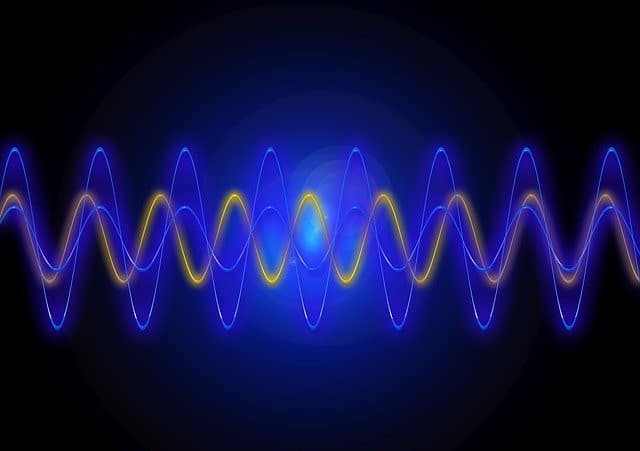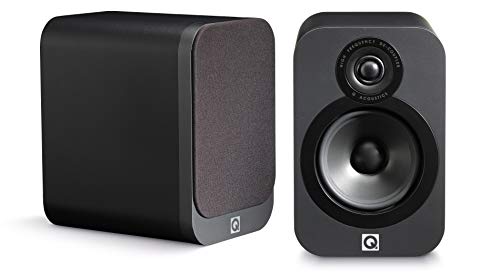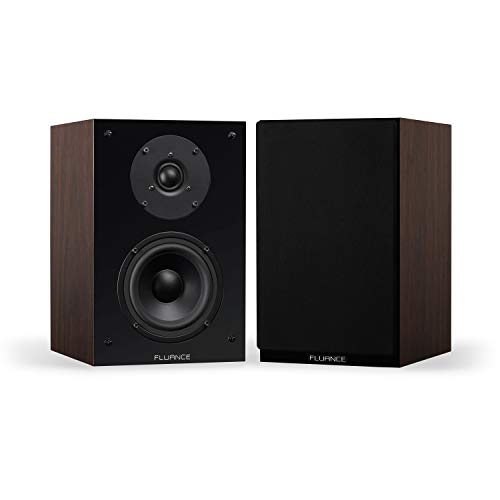Speakers are usually the only audio equipment needed in a home. Most of the time this is true, good speakers equal quality sound. So, it makes sense that people want good speakers. One of the confusing things when buying speakers is the frequency response. What frequency response is good for speakers?
The preferred frequency response for speakers is 20 Hz to 20 kHz. The human audio spectrum ranges from 20 Hz to 20 kHz. Speakers should be able to produce sounds in this range.
I’m sure this doesn’t tell you a lot, of course, there’s more to it.
What Is Frequency Response In Speakers

If you have been browsing speakers for quite some time now, you may have noticed that all of them have a “frequency range” in the specs list. Manufacturers are required to list the frequency range of the speakers. If you can’t find it, it’s not a good sign. So, what does the frequency range mean?
Speakers register and produce sound. A certain input signal is registered and then played. The input sound has to be in the speaker’s frequency range. If the audio input is outside the speaker’s frequency range, the sound won’t be played.
Humans have a frequency range too. We all have met with the human audio spectrum graph in school at a certain point. The graph measures at what frequency we can hear sounds. The low notes we call bass notes, the high notes we call treble. The audio frequency at which humans can register sounds ranges from 20 Hz to 20 000 Hz.
Since speakers are made by us, and for us, the preferred frequency range is 20 Hz to 20 kHz. The frequency range of speakers determines what kind of input can be registered. How far can it go with low and high notes?
Related article – How To Balance Bass And Treble
What Is The Best Frequency Range For Speakers
Besides registering sounds, the speakers have to play the given input. So, it’s important how well the speaker plays the sounds in the frequency range. So, some would say that you shouldn’t look for the best frequency response but a flat response.
Speakers can have the preferred frequency response which is 20 Hz to 20 kHz but also have bad sound quality. Even though it registers certain signals, it distorts the sound while playing. This is why sticking to the frequency response is not always a good idea.
The speakers that have a good frequency response rate can play sounds from all ranges in the human audio spectrum. The output sound has to be of the same quality and volume as the original input signal. Good speakers play sounds exactly as they are registered, without any loss in quality.
So, should you look for speakers with a flat response or stick with the 20 Hz to 20 kHz range?
Flat Response Speakers
By flat response speakers, we mean speakers that play lossless audio in a frequency range of 20 Hz to 20 kHz. If you ask producers or musicians what frequency response is good, they’ll answer flat response speakers.
And many audiophiles would agree. The best speakers are those with a flat response. That’s why the speakers you see in studios are so expensive. But I guess you’re not looking for studio-grade audio equipment.
Flat response speakers don’t really work when used at home. They are designed for a controlled environment. In your home, there’s a lot of ambient noise, so not increasing or decreasing the volume for some sounds is bad.
Bookshelf speakers can’t be used in studios because they don’t have a flat response. Some low notes are played with an increased volume and high notes with a decreased volume. This is very noticeable in studios where there’s no background noise.
Bookshelf Speakers
There’s a reason why bookshelf speakers don’t have a flat response. Manufacturers account for the ambient noise in rooms, so they tweak the speakers. Bookshelf speakers add more life to the sound. Flat response speakers would sound dead at home.
I’m guessing you’re looking for speakers like these. Most bookshelf speakers have an audio frequency range of 20 Hz to 20 kHz. Brands like to follow this rule and pay attention to features that most users prefer: stereo sound, bass, sensitivity, etc.
So, most of the speakers you’ve seen while browsing actually have the preferred audio frequency range. I’m talking about mid-range and expensive speakers. It’s always tricky with cheap speakers from unknown brands.
Related article – What Hz Is Best For Bass?
What Should I Look For
Now that we’ve covered frequency response, you may be wondering: What kind of speakers should I buy? Since I confused you with all this talk about frequency range, I feel obliged to help. I’ll list some speakers that are a good example of what good speakers should look like.
Quality Speakers With A Good Frequency Response
- Polk Audio S20 Bookshelf Speakers
 The S20 is an excellent example of how bookshelf speakers don’t have to follow the preferred frequency response. Good features are needed for home audio, and the S20 got them. It has a frequency response of 39 Hz to 40 kHz.
The S20 is an excellent example of how bookshelf speakers don’t have to follow the preferred frequency response. Good features are needed for home audio, and the S20 got them. It has a frequency response of 39 Hz to 40 kHz. - Q Acoustics 3020 Bookshelf Speakers
 The 3020 is an example of how smaller speakers should look like. It has a frequency response of 64 Hz to 30 kHz. Even though it’s not in the 20-20 range, the speakers are perfect for home audio.
The 3020 is an example of how smaller speakers should look like. It has a frequency response of 64 Hz to 30 kHz. Even though it’s not in the 20-20 range, the speakers are perfect for home audio. - Fluance SX6W Bookshelf Wooden Speakers

This also serves as a great example for good speakers. It has a frequency range of 60 Hz to 20 kHz. Wooden design.
Conclusion
You can pick any speakers that resemble the speakers I listed above. Looking for those features and quality sound matters more than the frequency response. The frequency response is important mostly for recording studios. At home, you need bookshelf speakers which have a lot of features for a noisy environment.
In case you don’t like that some bookshelf speakers can’t play low notes, consider getting an amplifier. It’s better to get an amplifier for your speaker than to buy studio-grade audio equipment. Avoid cheap speakers as these will distort sounds even if the frequency response is right.
Well, that’s it for this post. I hope I helped you with your questions.
Interesting read – Can I Mix Speakers With Different Ohms?
